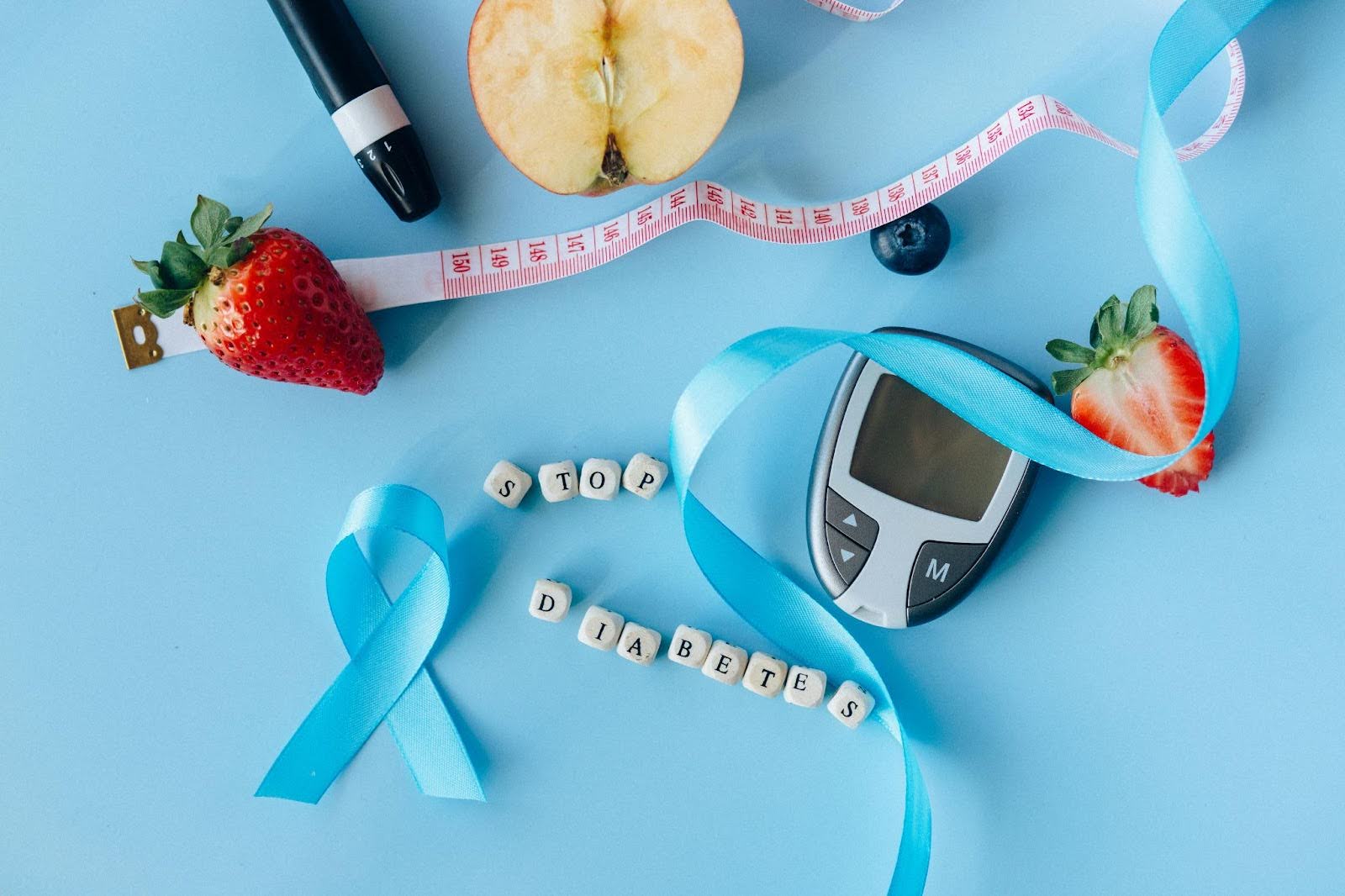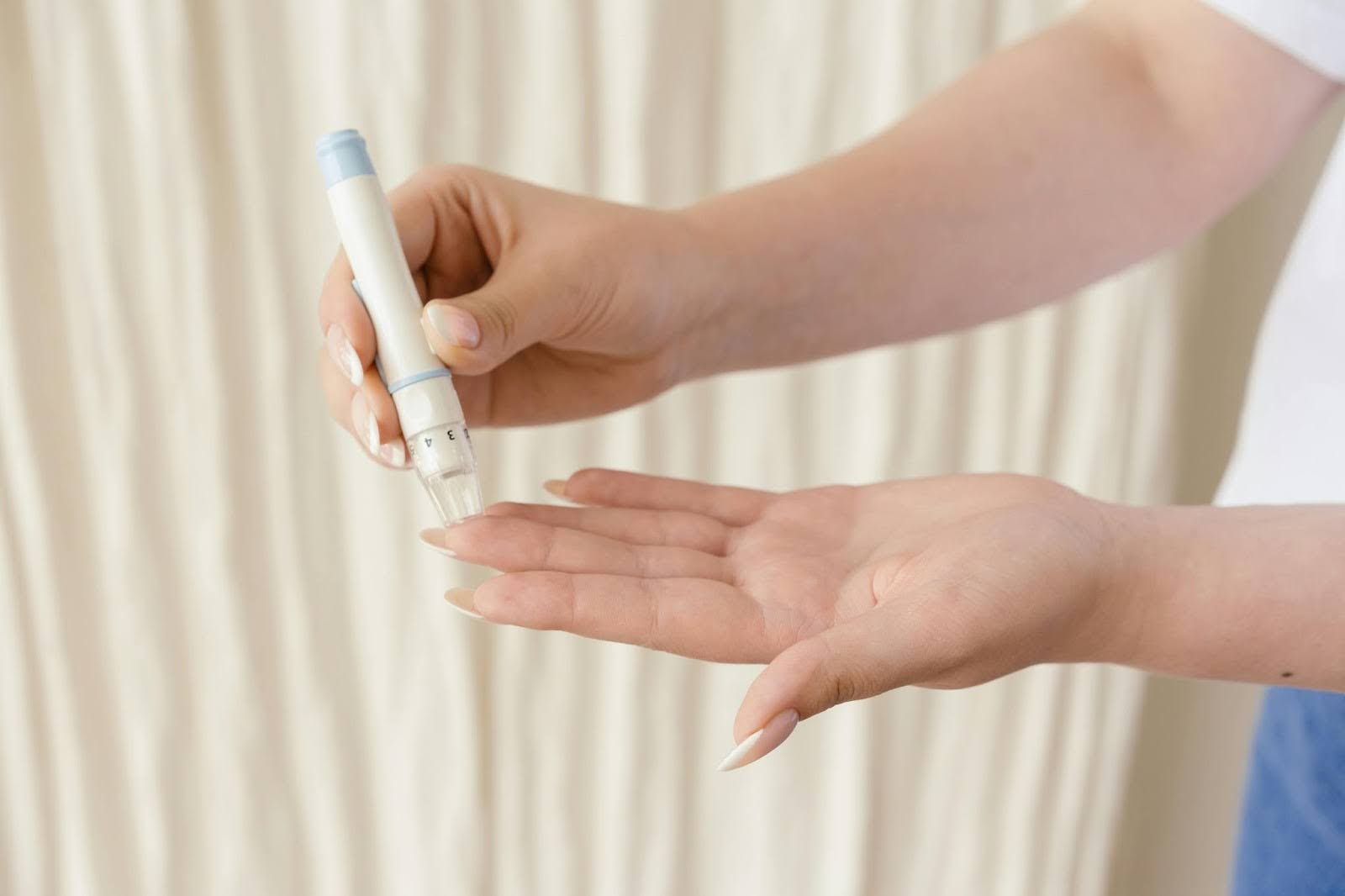Managing blood sugar levels is crucial for individuals with diabetes to maintain overall health and prevent complications. While a healthy lifestyle with a balanced diet and regular exercise is fundamental, certain supplements can provide additional support in managing blood sugar. This guide explores the role of supplements as an adjunct to conventional diabetes management, offering insights into how they can contribute to a healthier life for those with diabetes.
Understanding Diabetes
Diabetes is a condition that affects how your body regulates blood sugar (glucose), a vital energy source for your cells. When we eat, our bodies break down carbohydrates into glucose, which enters the bloodstream. The hormone insulin, produced by the pancreas, acts like a key, allowing glucose to enter the cells and be used for energy. In diabetes, this process is disrupted.
There are two main types:
- Type 1 diabetes: An autoimmune condition where the body's immune system mistakenly attacks and destroys the insulin-producing cells in the pancreas. This leads to a complete lack of insulin, requiring lifelong insulin therapy.
- Type 2 diabetes: A condition where the body either doesn't produce enough insulin or doesn't use it effectively. This is often linked to lifestyle factors like obesity, inactivity, and a diet high in processed foods and sugary drinks.
Prediabetes is a condition where blood sugar levels are higher than normal but not high enough to be diagnosed as type 2 diabetes. It's a critical stage where lifestyle changes can prevent or delay the progression to type 2 diabetes.
Maintaining healthy blood sugar levels can be challenging, but with the right approach, including lifestyle modifications and, in some cases, health supplements, individuals with diabetes can lead healthy and fulfilling lives.

How Supplements Can Help Manage Diabetes
Supplements can play a supportive role in diabetes management by improving insulin sensitivity, which means helping your body use insulin more effectively to get glucose into cells. They can also support healthy beta cell function; these cells in the pancreas are responsible for producing insulin, and some supplements may help protect and support them.
Additionally, certain supplements have anti-inflammatory properties that can help address inflammation, a common issue in diabetes that can worsen complications. They may also help protect against oxidative stress, which damages cells and tissues and is often increased in diabetes. Antioxidants in supplements can help combat this.
While supplements are not a substitute for prescribed medication or a healthy lifestyle, they can offer additional support. It's important to note that supplements are not a cure for diabetes, and they work best when combined with a balanced diet, regular exercise, and proper medical care.
Top Supplements for Diabetes
Several supplements have shown promising effects in supporting blood sugar management. Here are some of the most researched options:
- Magnesium: This essential mineral plays a crucial role in insulin sensitivity and glucose control. Studies suggest magnesium supplementation may improve insulin sensitivity and help regulate blood sugar levels.
- Chromium: This trace mineral is involved in insulin action. Chromium supplementation may help improve insulin sensitivity and reduce blood sugar levels in some individuals with diabetes.
- Alpha-Lipoic Acid (ALA): A powerful antioxidant, ALA may help protect against oxidative stress, a key contributor to diabetic complications. It may also improve nerve health in individuals with diabetes.
- Berberine: This natural compound extracted from various plants has been shown to help lower blood sugar levels and improve insulin sensitivity.
- Vitamin D: Low levels of vitamin D are linked to insulin resistance. Supplementing with vitamin D may help improve insulin sensitivity and blood sugar control.
- Cinnamon Extract: Some studies suggest that cinnamon extract may help lower blood sugar levels and improve insulin sensitivity.
- Dia-Med Nopal Cactus: Dia-Med Nopal Cactus is a nutrient-rich supplement designed to support healthy blood sugar levels. This diabetes health supplement is packed with vitamins, minerals, and fibre.
Beneficial Nutrients for Diabetics
In addition to specific supplements, certain nutrients are particularly helpful for individuals with diabetes:
- Omega-3 Fatty Acids: These healthy fats help reduce inflammation and support heart health, which is crucial for individuals with diabetes who are at an increased risk of cardiovascular disease.
- Probiotics: These beneficial bacteria may improve gut health and metabolism, potentially aiding in blood sugar control.
- Zinc: This mineral is involved in insulin production and regulation. Ensuring adequate zinc intake is important for individuals with diabetes.
Scientific Evidence Supporting Supplement Use
Numerous studies support the use of these supplements for diabetes management. For example, research has shown that magnesium supplementation can improve insulin sensitivity in people with type 2 diabetes, and chromium supplementation may help lower blood sugar levels in individuals with impaired glucose tolerance. However, it's important to note that more research is still needed to confirm their long-term effectiveness and optimal dosages.
Lifestyle Practices Alongside Supplementation
Supplements work best when combined with a healthy lifestyle:
- Balanced Diet: A diabetes-friendly diet rich in fibre, lean protein, and healthy fats is essential for managing blood sugar levels. Focus on whole, unprocessed foods like fruits, vegetables, whole grains, legumes, and lean meats. Limit refined carbohydrates, sugary drinks, and unhealthy fats.
- Exercise: Regular physical activity helps improve insulin sensitivity and blood sugar control. Aim for at least 150 minutes of moderate-intensity aerobic exercise or 75 minutes of vigorous-intensity aerobic exercise per week, spread throughout the week.
- Sleep & Stress Management: Adequate sleep and stress management play a vital role in regulating blood sugar levels. Chronic stress and lack of sleep can increase cortisol levels, which can lead to insulin resistance. Aim for 7-9 hours of quality sleep per night and practice stress-reducing techniques like meditation, yoga, or deep breathing exercises.
Safety and Considerations
When considering supplements for diabetes management, it's crucial to prioritise safety. Always consult your healthcare provider before starting any new supplement, especially if you have diabetes or are taking medication, as some supplements may interact with diabetes medications. It's essential to discuss this with your doctor to avoid potential problems. Additionally, choose high-quality supplements from reputable sources to ensure safety and effectiveness.
Conclusion
Supplements can be a valuable addition to a comprehensive diabetes management plan. They can help support healthy blood sugar levels, improve insulin sensitivity, and protect against complications. However, it's crucial to note that supplements are not a replacement for conventional treatment. They should be used in conjunction with a balanced diet, regular exercise, and medical advice to achieve optimal diabetes management.



















